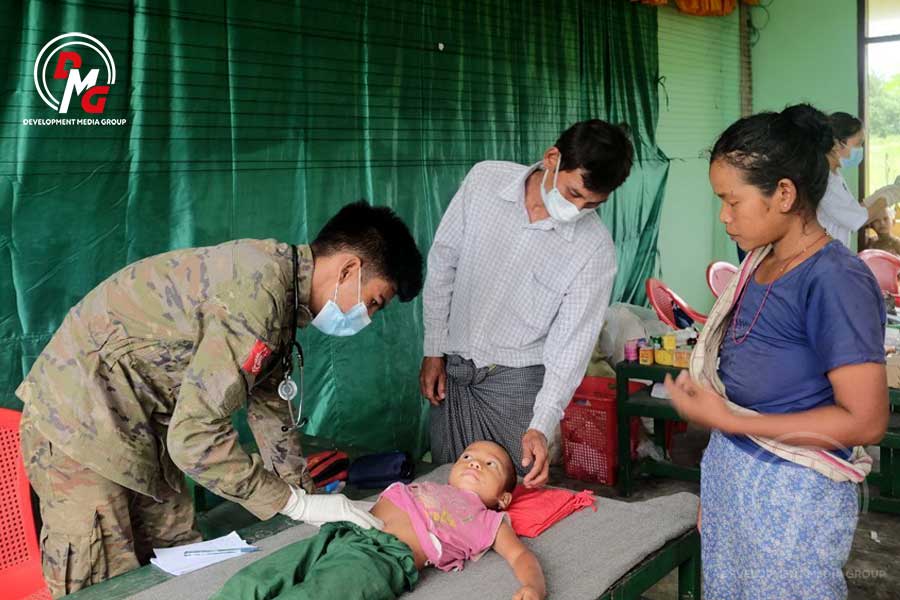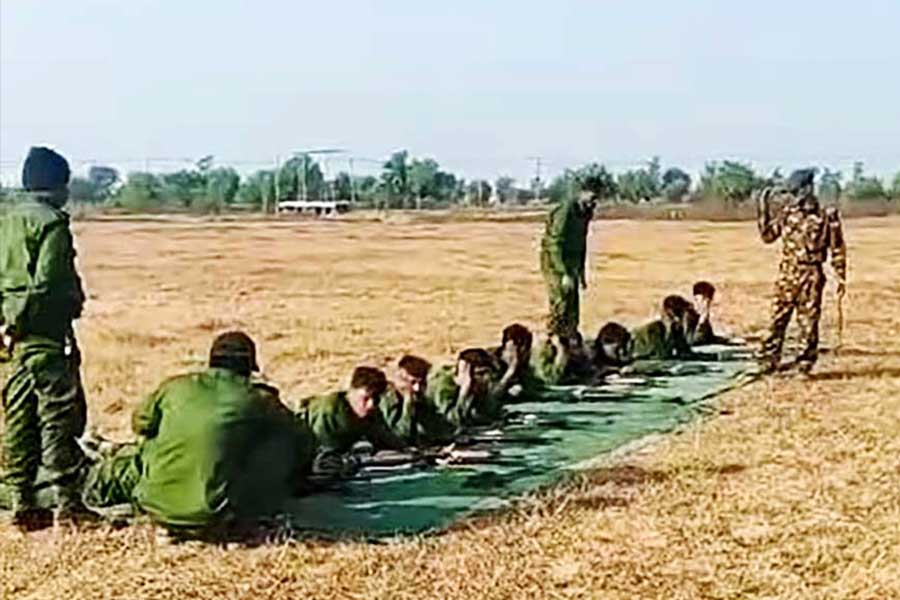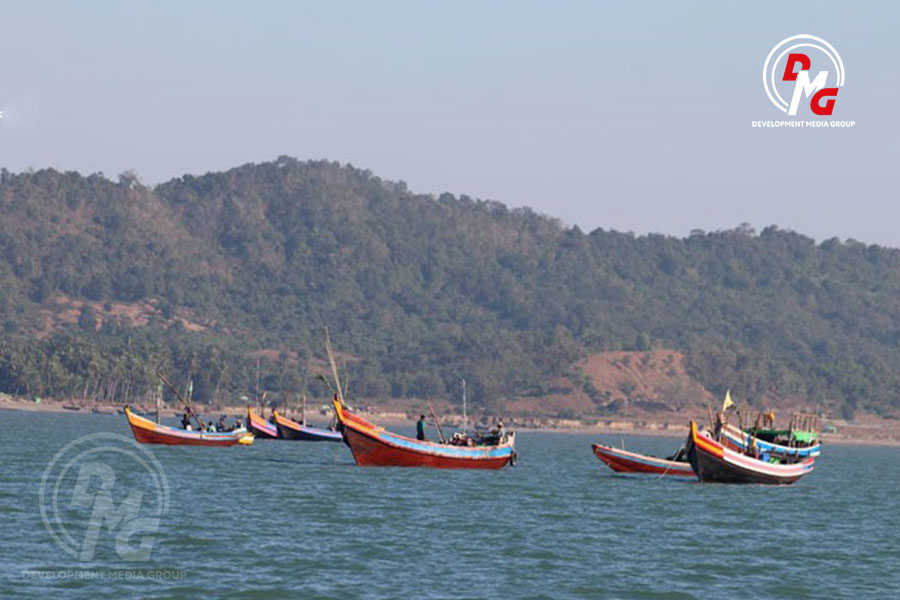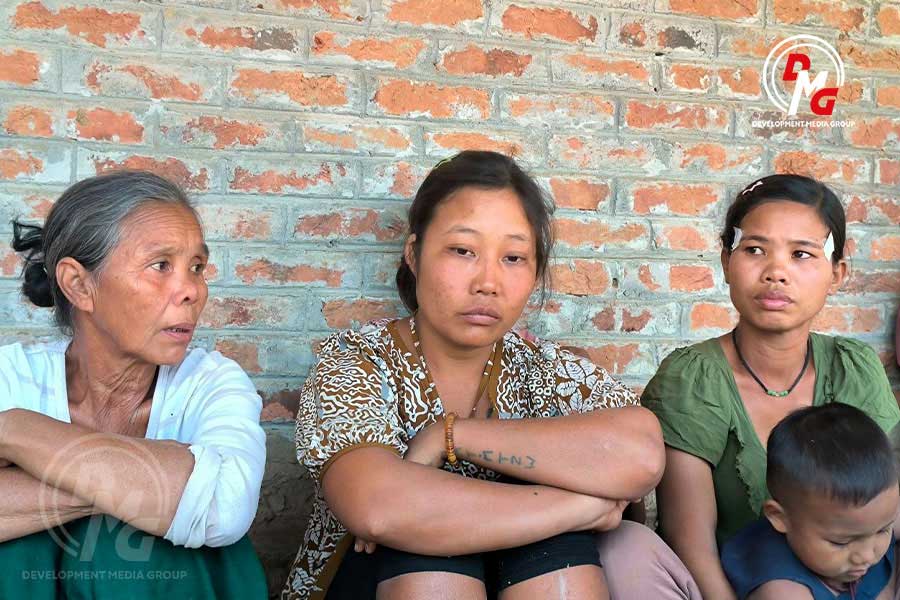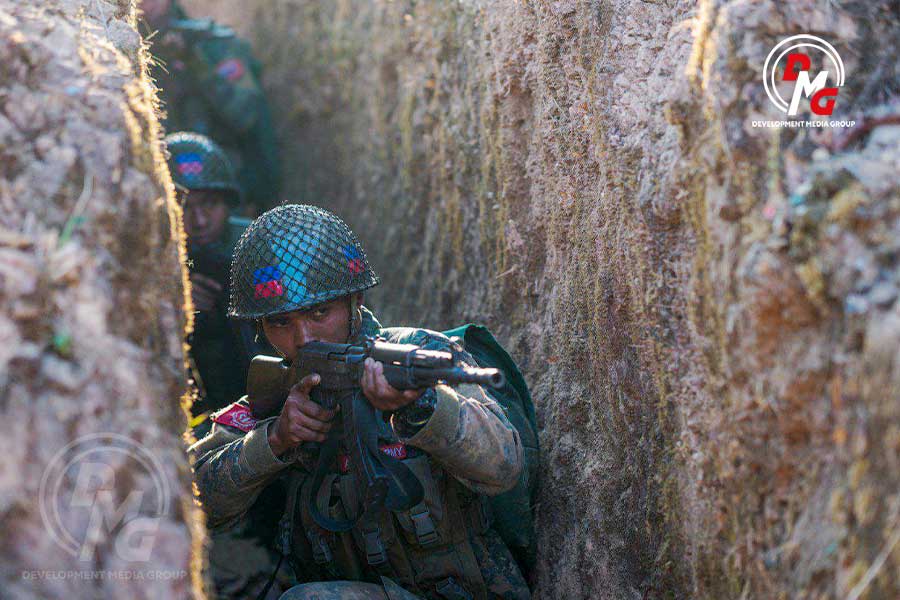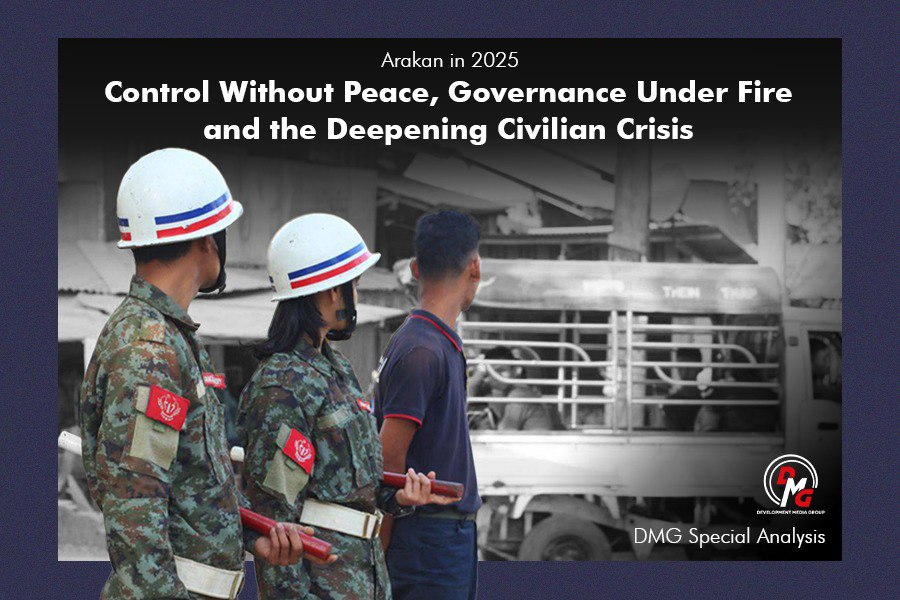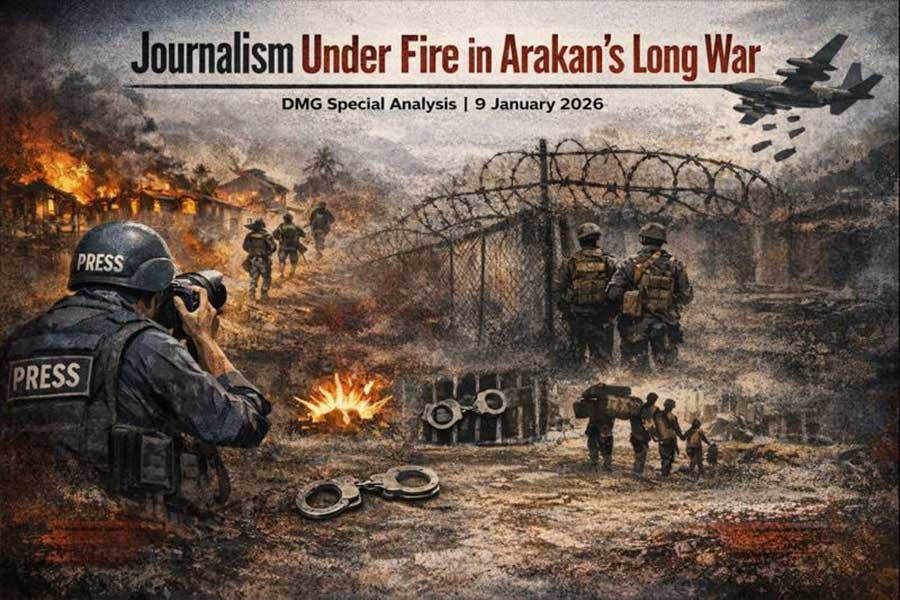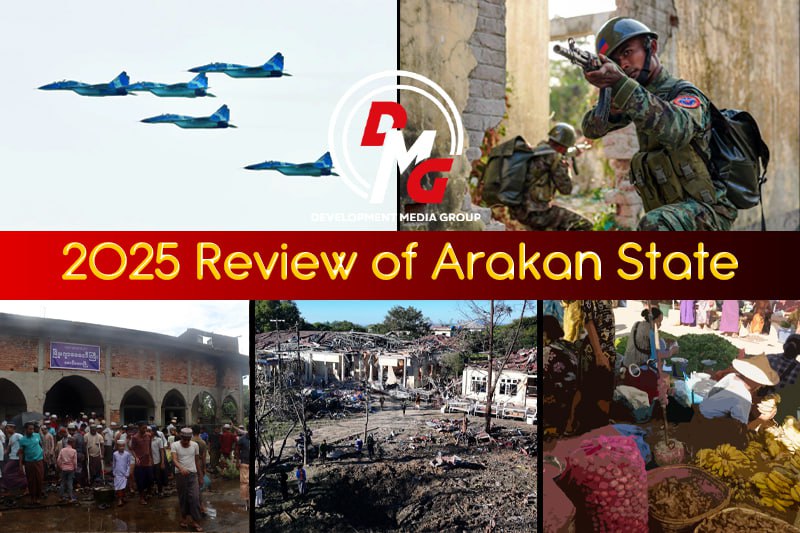- Children in Arakan State face rising cases of pneumonia and flu
- Muslim militiamen flee junta camps in Sittwe amid oppression, discrimination
- Junta navy activities halt fishing in Thandwe
- Junta airstrike kills 21 POWs, family members at Kyauktaw detention centre
- Arakan Army seeks to expand territorial control in Sittwe
In war-torn Arakan, remembering the ‘human’ in human rights violations
The military handed over three people including U Maung Phyu Tun, 73, to the Kyauktaw police station on March 4 and police thereafter informed the detainees’ family members, said U Kyaw Kyaw, son of U Maung Phyu Tun. U Kyaw Kyaw said a policeman phoned him at about 8 p.m. saying soldiers had left his father at the Kyauktaw police station.
30 Mar 2020
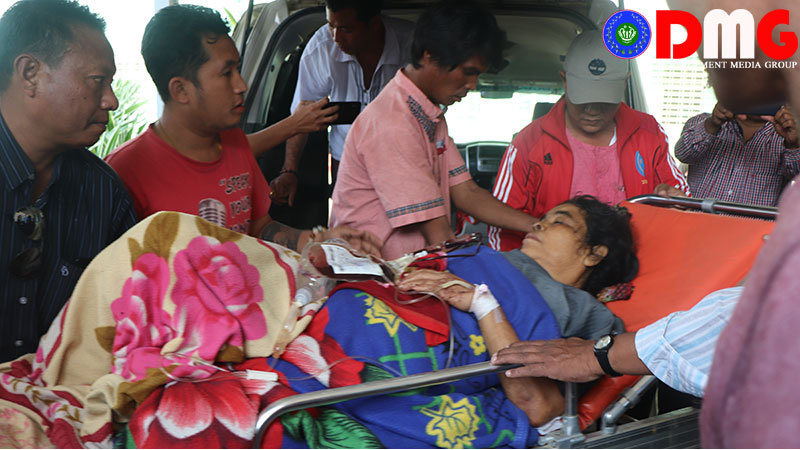
Written by Khaing Roe La
As the conflict in Arakan State drags on, casualty totals — and cases of persons gone missing or arbitrarily detained — continue to rise.
As the numbers increase and individual cases risk becoming subsumed and overshadowed by the statistics they are a part of, it is important to remember that each errant artillery shell or unwarranted abduction is a life or lives forever changed, and never for the better.
With hundreds killed or injured by the conflict and numerous arrests and disappearances over the course of the conflict between the Tatmadaw and the Arakan Army, it is sometimes instructive to take a step back; to put names, places and stories to some of the many people impacted by war in western Myanmar.
‘We hoped he would be released’
People from Namada village in Paletwa Township, Chin State, who had travelled to Arakan State’s Kyauktaw Township to sell bamboo, were arrested by the Tatmadaw on February 26 near Kyauktaw’s Tinma village on their return home, family members said.
The military handed over three people including U Maung Phyu Tun, 73, to the Kyauktaw police station on March 4 and police thereafter informed the detainees’ family members, said U Kyaw Kyaw, son of U Maung Phyu Tun. U Kyaw Kyaw said a policeman phoned him at about 8 p.m. saying soldiers had left his father at the Kyauktaw police station.
When they arrived in Kyauktaw early the next morning, their elderly father was dead. They were told he died at about 1 a.m, U Kyaw Kyaw said.
Family members said the body showed injuries indicative of maltreatment; abrasions apparently from rope binding his hands, and bruises on his face.
U Kyaw Kyaw said he had thought that his father would be released after the region stabilized because his father was in his 70s, but the Tatmadaw instead handed him over to police when he was at death’s door. It was an act of brutality, his son said.
“We hoped he would be released since the moment we heard he was arrested,” U Kyaw Kyaw said.
DMG phoned Brigadier-General Zaw Min Tun from the Tatmadaw True News Information Team and Colonel Win Zaw Oo of the military’s Western Command to inquire about the death of U Maung Phyu Tun, but they could not be reached.
U Kyaw Kyaw sent a complaint to the Arakan Human Rights Defenders and Promoters group on March 6. To date no one has been held accountable for the death of U Maung Phyu Tun.
Still missing
On February 29, 58-year-old U San Shwe Than from Ahtote Thay Ma village in Mrauk-U Township went missing on the way to Mrauk-U from his village, amid fighting near Myaung Bway village.
Family members investigated the case, but they have not yet received any information on U San Shwe Than’s whereabouts, making them worried for his safety.
The Tatmadaw on March 3 said that it retaliated for an attack of the Arakan Army, which detonated remote-controlled mines at three places about 1,500 meters west of Myaung Bway village and opened fire on a military convoy on February 29.
A total of 14 suspected people found near Myaung Bway village were arrested after the fighting, it said.
One of the 14 detained people said he saw U San Shwe Than in the group arrested by the Tatmadaw, daughter Ma Mya Hnin Wai said.
“He told me my father was together with them on the first night they were arrested. The following day, they were blindfolded. So, he did not know where he was and my father was. We are worried for my father,” Ma Mya Hnin Wai said.
During the fighting near Myaung Bway village, nine people were killed and 18 people were injured, the Rakhine Ethnics Congress (REC) said.
Family members sought help from Colonel Min Than, the regional minister for Security and Border Affairs, to find U San Shwe Than, and they were told that he would investigate the case, family members said.
U Myat Tun, director of the Arakan Human Rights Defenders and Promoters group, said armed groups were violating the human rights of civilians in Arakan State. He urged the warring parties not to fire indiscriminately on villages and to make every effort to avoid ensnaring civilians in the conflict.
“The Tatmadaw arrested people on suspicion of being members of the Arakan Army. But, the detained people are just civilians,” he said.
There have been more than 30 complaints claiming violations of human rights over the course of the conflict between the Tatmadaw and the AA in Arakan State, according to the Arakan Human Rights Defenders and Promoters group.
With no end to the hostilities in sight, that number looks likely to rise.




